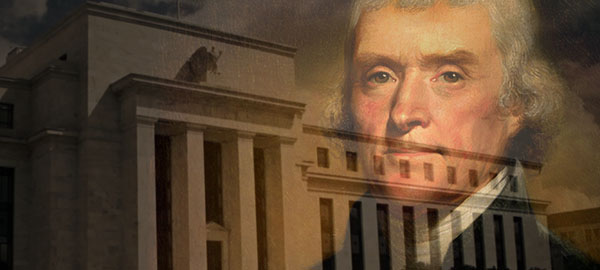By Thomas Jefferson. A Founding Father’s Opinion Concerning the Constitutionality of a Federal Bank, 1791. Though it is common to discuss Andrew Jackson’s opinion about a national bank, it is far less common to hear Thomas Jefferson’s version of things. Here, Jefferson lays out, systematically, his views on finance and the nature of a bank. The existence of the Federal Reserve in contemporary times simply shows how far the present regime is from the mind of the Founding Fathers.

The bill for establishing a national bank undertakes among other things: 1.) To form the subscribers into a corporation; 2.) To enable them in their corporate capacities to receive grants of land; and so far is against the laws of mortmain;1 3.) To make alien subscribers capable of holding lands, and so far is against the laws of alienage; 4.) To transmit these lands, on the death of a proprietor, to a certain line of successors; and so far changes the course of descents; 5.) To put the lands out of the reach of forfeiture or escheat, and so far is against the laws of forfeiture and escheat; 6.) To transmit personal chattels to successors in a certain line and so far is against the laws of distribution; 7.) To give them the sole and exclusive right of banking under the national authority; and so far is against the laws of monopoly; 8.) To communicate to them a power to make laws paramount to the laws of the States; for so they must be construed, to protect the institution from the control of the State legislatures, and so, probably, they will be construed. [Read the entire article as PDF…]
Taken from
The Barnes Review, March/April 2005: Thomas Jefferson Lambastes the Bankers
VOLUME XI, NUMBER 2